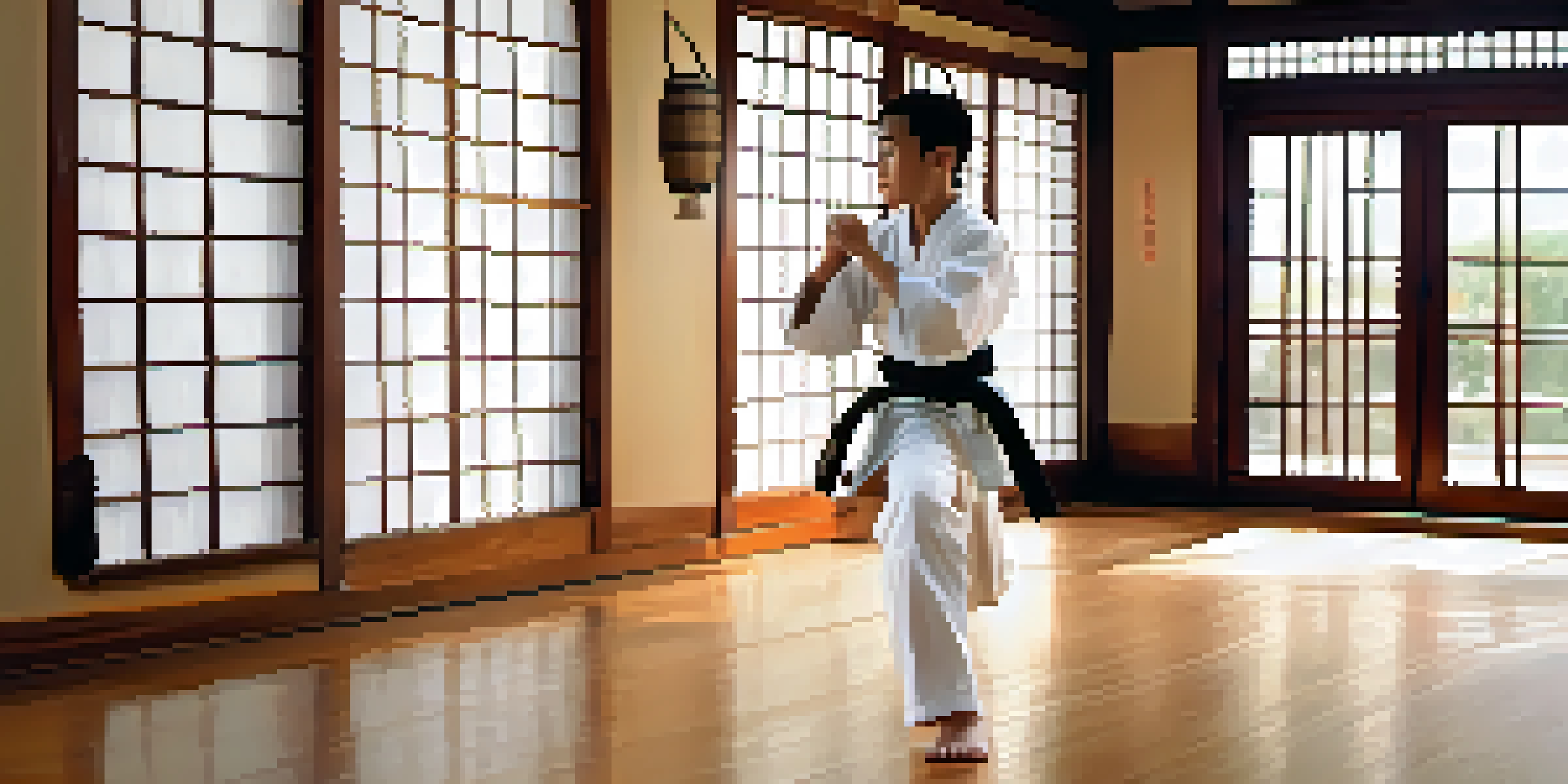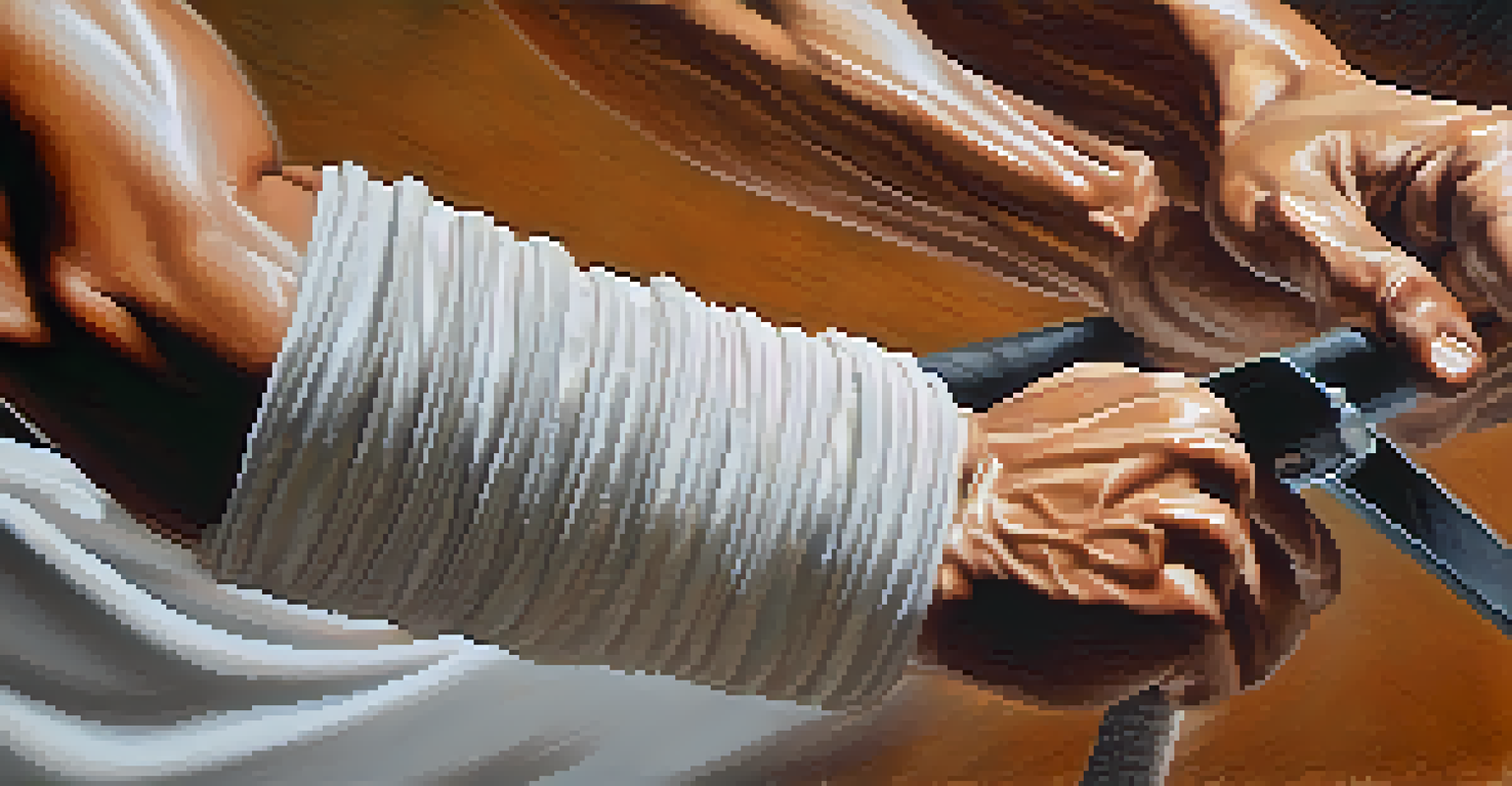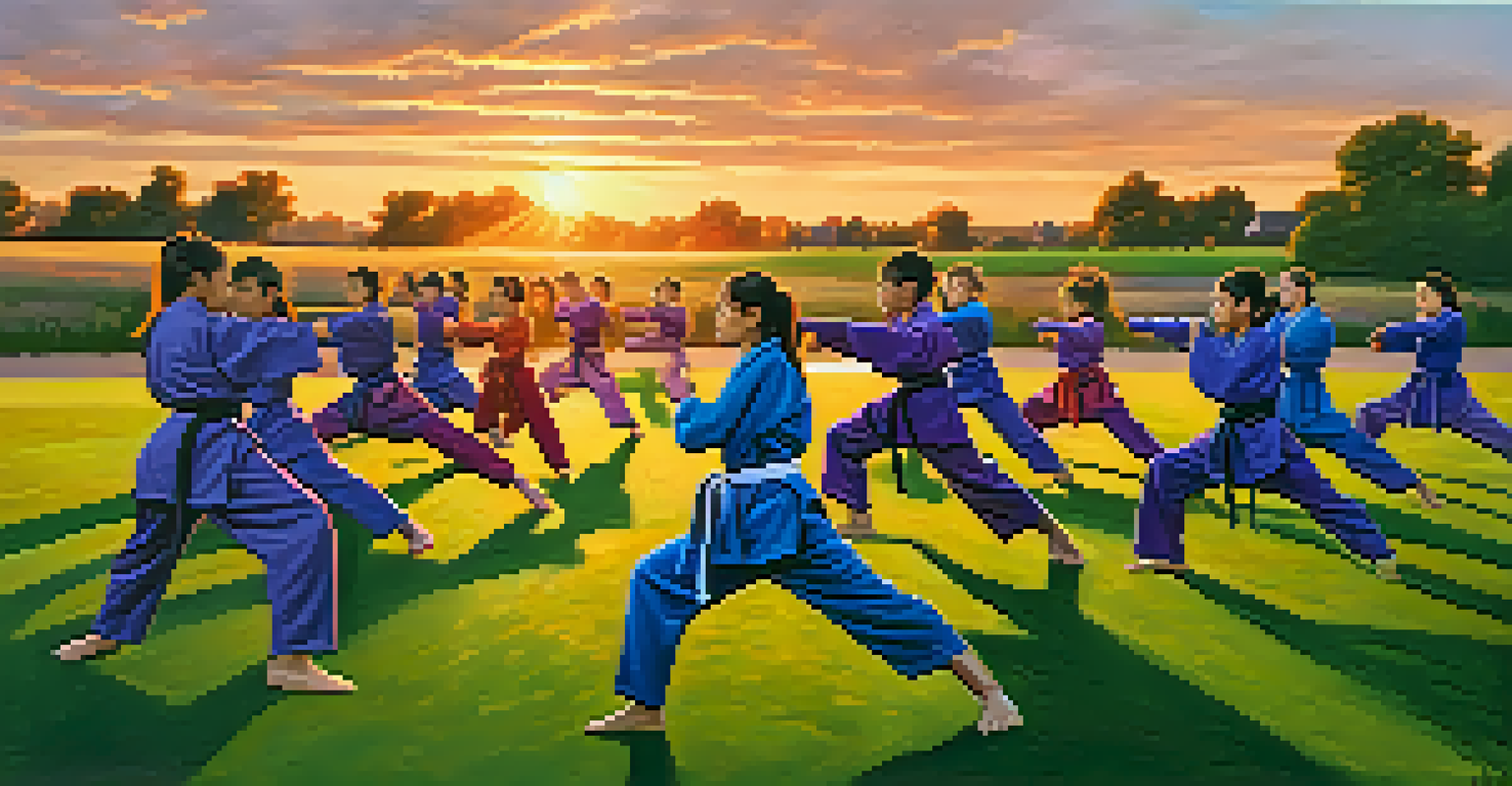The Role of Discipline in Martial Arts and Personal Development

Understanding Discipline in Martial Arts Practice
Discipline in martial arts is the foundation upon which skills are built. It encompasses regular training, adherence to techniques, and mental focus. Without discipline, practitioners might struggle to progress or even stay motivated, as the journey requires consistent effort over time.
Discipline is the bridge between goals and accomplishment.
For instance, consider a student who practices karate. They must attend classes consistently, practice their kata, and spar with partners to improve. This routine instills a sense of commitment and helps them develop a structured approach to learning.
Ultimately, the discipline learned in martial arts goes beyond the dojo; it shapes how individuals tackle challenges in their daily lives, allowing them to approach both training and personal goals with dedication.
Discipline as a Tool for Self-Control
Self-control is a crucial aspect of discipline, particularly in martial arts. Practitioners learn to manage their impulses and emotions, which is vital when facing opponents or stressful situations. This level of self-regulation not only enhances performance in martial arts but also benefits personal interactions and decision-making.

Imagine a martial artist in a sparring match who feels frustration rising. Instead of losing composure, they draw upon their training to remain calm and focused. This ability to control one's emotions translates into everyday scenarios, whether at work or in personal relationships.
Discipline Fuels Personal Growth
The discipline learned in martial arts significantly contributes to personal development by enhancing qualities like confidence, resilience, and respect.
Thus, discipline cultivates a mindset that values patience and restraint, essential traits for success both on and off the mat.
Building Confidence Through Consistent Training
Martial arts training is a journey of self-discovery that significantly boosts confidence. The more disciplined a student is in their practice, the more skills they acquire, leading to a sense of achievement. This newfound confidence can transform how they view themselves and their capabilities.
The more you sweat in training, the less you bleed in combat.
For example, consider a beginner who struggles with basic techniques. Through consistent practice and discipline, they gradually master their moves and can perform them with ease. This progression not only enhances their martial arts skills but also reinforces their self-esteem.
Therefore, the confidence gained through martial arts discipline empowers individuals, encouraging them to take on new challenges both inside and outside the dojo.
Discipline and Goal Setting in Martial Arts
In martial arts, discipline plays a key role in setting and achieving goals. Whether aiming for a new belt rank or mastering a specific technique, having clear objectives helps practitioners stay focused. Discipline ensures that these goals are pursued with commitment and perseverance.
Take, for instance, a student preparing for a belt test. They must follow a strict training regimen, practicing their forms, sparring techniques, and theoretical knowledge. This structured approach not only aids in their preparation but also instills a strong work ethic.
Self-Control Enhances Performance
Practicing martial arts helps individuals develop self-control, allowing them to manage their emotions effectively in challenging situations.
As a result, martial artists learn to break down larger goals into manageable tasks, a skill that is invaluable in personal development and other areas of life.
Resilience: Overcoming Challenges Through Discipline
Resilience is another significant benefit of discipline in martial arts. Training often involves facing physical and mental challenges that can be daunting. However, through disciplined practice, students learn to embrace these obstacles and develop a strong mindset.
Consider the experience of a martial artist facing a tough opponent. Instead of succumbing to fear or discouragement, they rely on their training and discipline to push through the challenge. This resilience becomes a powerful tool for handling setbacks in everyday life.
Thus, the ability to bounce back from difficulties, fostered by martial arts discipline, is essential for personal growth and achieving long-term success.
The Connection Between Discipline and Respect
Discipline in martial arts is closely tied to respect—both for oneself and others. Practitioners learn to respect their instructors, peers, and the art itself, which reinforces a sense of community. This mutual respect nurtures a positive training environment, encouraging growth and collaboration.
For example, when students bow to each other before and after sparring, it signifies acknowledgment of their shared journey and commitment to the art. This practice fosters camaraderie and encourages individuals to support one another's progress.
Goal Setting Drives Success
Discipline is crucial for setting and achieving goals in martial arts, teaching practitioners to break down larger objectives into manageable tasks.
In essence, the respect cultivated through disciplined martial arts practice enhances relationships and promotes a unified, encouraging atmosphere.
Translating Martial Arts Discipline to Everyday Life
The discipline learned in martial arts can easily be applied to everyday life. Many practitioners find that the skills they develop—such as focus, perseverance, and self-control—help them navigate challenges outside the dojo. This transfer of skills is a testament to the holistic nature of martial arts.
Consider a student who has mastered the art of time management through their training schedule. The discipline required for consistent practice translates into better organization and productivity in their work or studies. This interconnectedness highlights how martial arts can influence various aspects of life.

Ultimately, the lessons learned in martial arts extend far beyond physical techniques, providing valuable life skills that contribute to personal success.
The Lasting Impact of Discipline on Personal Development
The role of discipline in martial arts is profound, impacting all facets of personal development. From building confidence and resilience to fostering respect and self-control, the lessons learned extend well beyond the mat. These qualities shape individuals into more balanced, capable persons.
As practitioners continue their journey, they often find that the discipline they cultivated in martial arts becomes a guiding principle in their lives. They are better equipped to face challenges, set goals, and maintain a healthy perspective on growth and learning.
In conclusion, the discipline developed through martial arts not only enhances physical skills but also lays a solid foundation for personal development, creating a lasting impact on individuals' lives.